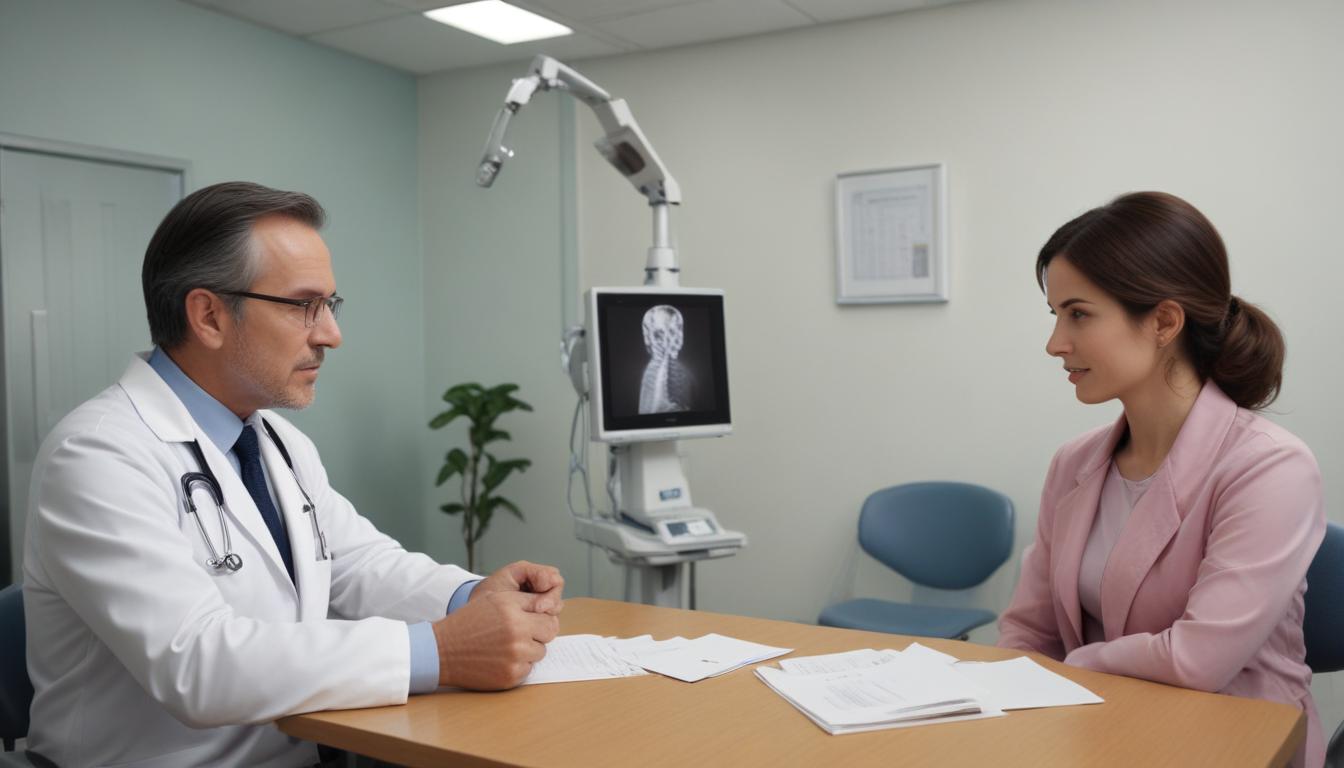Now Reading: Why Regular Check-ups Can Save Your Life
-
01
Why Regular Check-ups Can Save Your Life
Why Regular Check-ups Can Save Your Life

The Importance of Regular Check-ups and Screenings for Your Long-Term Health
Do you ever find yourself thinking, “I feel fine, so why should I go to the doctor?” It’s a common mindset. Life is busy, medical appointments can be inconvenient, and let’s be honest, sometimes we’d rather not know if something is wrong. We put off that annual physical, ignore the reminders for health screenings, and operate on the principle of “if it isn’t broken, don’t fix it.” This approach, however, treats your health as a reactive chore rather than what it truly is a proactive investment in your future. The solution is to shift your perspective. Think of regular check-ups not as a sign of sickness, but as the ultimate tool for prevention and empowerment, allowing you to stay in control of your well-being for years to come.
These appointments are your opportunity to build a comprehensive picture of your health over time. They are far more than just a quick listen to your heart and lungs; they are a strategic defense against potential health issues. By catching problems early, you significantly increase the chances of successful treatment and can often prevent minor issues from escalating into major, life-altering conditions. Investing an hour or two each year in preventive care can save you countless hours of treatment, stress, and expense down the road. It is the single most effective step you can take to ensure a long, vibrant, and healthy life.
Beyond the Annual Physical The Power of Preventive Care
Preventive care is the cornerstone of modern medicine, and it extends far beyond simply reacting to symptoms. Its primary goal is to identify and address health risks before they develop into serious diseases. During a regular check-up, your doctor doesn’t just look for what’s wrong; they establish a baseline of what’s right for you. This includes evaluating your lifestyle, family medical history, and personal risk factors. This partnership allows your physician to provide personalized guidance on nutrition, exercise, and other lifestyle modifications that can profoundly impact your long-term health.
Many of the most serious chronic conditions, such as high blood pressure (hypertension), high cholesterol, type 2 diabetes, and even some forms of cancer, are known as “silent” diseases. They can develop for years without producing any noticeable symptoms. By the time you start to feel unwell, the condition may already be advanced and more difficult to manage. Regular screenings act as an early warning system. Think of it like a routine inspection of your home’s foundation; you look for small cracks to repair them before they threaten the entire structure. Similarly, a simple blood pressure reading or a routine blood test can reveal a hidden issue when it is most treatable, often through simple lifestyle changes rather than intensive medical intervention.

What to Expect Key Screenings and Why They Matter
While the idea of medical tests can be intimidating, understanding what to expect can demystify the process and highlight its importance. Health screenings are tailored to your specific profile, including your age, gender, and family history. Your doctor will recommend a schedule that is right for you, but there are several foundational screenings that form the bedrock of preventive health for most adults. These tests provide a critical snapshot of your body’s inner workings and help identify risks you can’t see or feel.
This proactive approach is not one-size-fits-all, which is why a consistent relationship with a primary care physician is so valuable. They can track your results over time, notice subtle changes, and adjust your care plan accordingly. For example, a blood pressure reading that is slowly creeping up year after year is a clear signal for intervention, long before it reaches a critical level. Being informed about these key screenings empowers you to participate actively in your own health journey and make decisions that will protect your future.
Foundational Screenings for Most Adults
Regardless of gender, several key metrics are vital for assessing your overall health. A blood pressure check is one of the simplest yet most important screenings, as uncontrolled high blood pressure is a major risk factor for heart disease and stroke. Your doctor will also likely check your Body Mass Index (BMI) to assess if your weight is in a healthy range for your height. Furthermore, a lipid panel (cholesterol test) is a blood test that measures fats in your blood, including “good” (HDL) and “bad” (LDL) cholesterol, which is crucial for evaluating your risk of cardiovascular disease. A blood glucose test screens for prediabetes and diabetes, allowing for early intervention to prevent or delay the onset of the full-blown disease.
Crucial Screenings for Women
In addition to the foundational tests, women have specific screening needs that evolve with age. Starting in their 20s, regular Pap tests are essential for detecting cervical cell changes that could lead to cervical cancer. As women get older, typically starting around age 40 or 50, mammograms become a critical tool for the early detection of breast cancer. Later in life, especially after menopause, bone density scans are recommended to screen for osteoporosis, a condition that weakens bones and increases the risk of fractures. These gender-specific screenings are proven to save lives by catching diseases at their earliest, most treatable stages.
Essential Screenings for Men
Men also have unique health screening recommendations that should not be overlooked. Discussions about prostate cancer screening, which may involve a PSA (prostate-specific antigen) blood test, usually begin around age 50, or earlier for those with a family history of the disease. It’s a personal decision to be made with a doctor’s guidance. For men who have a history of smoking, a one-time screening for an abdominal aortic aneurysm (a potentially life-threatening bulge in the body’s main artery) is often recommended between the ages of 65 and 75. These targeted screenings address some of the most significant health risks facing men and are a vital part of a comprehensive preventive care plan.
Taking Charge of Your Health A Partnership with Your Doctor
Your annual check-up should not be a passive experience where you simply answer questions. It is your dedicated time to engage with a medical expert about your most valuable asset your health. To make the most of it, prepare in advance. Write down any questions or concerns you have, no matter how small they seem. Make a list of all medications, vitamins, and supplements you are taking. Be ready to talk openly about your lifestyle, including your diet, exercise habits, stress levels, and sleep patterns. The more information you provide, the better your doctor can tailor their advice to your individual needs.
Ultimately, regular check-ups build a powerful, long-term health partnership. When a doctor understands your personal health history and your normal baseline, they are in a much better position to recognize when something is amiss. This consistency of care is invaluable. Don’t wait for a symptom to become a serious problem. Take control of your health narrative today by scheduling your next check-up. It is a simple, powerful act of self-care that pays dividends for a lifetime.


































